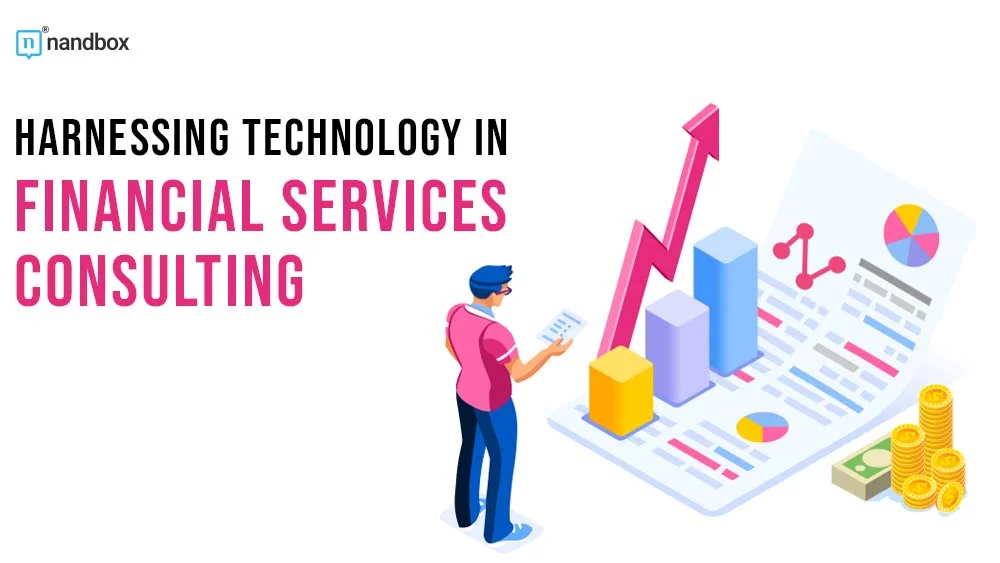Utilizing Technology in Financial Consultancy Services
The fast pace of technological advancements has transformed the financial services industry. The way financial consultancy services has also changed with the evolution of technology. Digital transformation has brought numerous benefits to this industry, including better results, enhanced customer experiences, improved accuracy and efficiency, and increased productivity. This article delves into the role of technology in financial services consulting, its benefits, the types of technology used, challenges associated with implementing technology, and best practices for successful technology implementation.
Benefits of Technology in Financial Consultancy Services
Improved Accuracy and Efficiency
Technology helps financial service consultants improve accuracy and efficiency by automating routine and manual tasks. Netsuite ap automation ensures streamlined processes, which result in fewer errors or data-entry mistakes; this translates to better data management systems. This results in fewer errors or data-entry mistakes, which translates to better data management systems. This technology also reduces pressure on employees, who can focus their skills and time on providing high-level services.
Better Data Analysis and Decision-making
With the aid of algorithms and technology tools like business intelligence and data analytics platforms such as Tableau and Power BI, financial tech consultant can conduct more precise and rapid financial risk analyses. They can compare and extract data from various sources, enhancing data protection practices.
Enhanced Customer Experience
Customer experience is crucial to all businesses. Financial service consultants can leverage technology tools to improve their customer experiences. Technology offers round-the-clock support, enabling clients to access consultants’ expertise from their comfort zones. Interaction through chatbots or voice assistants provides real-time support and personalized services.
Increased Productivity and Cost-saving
Deploying technology tools results in rapid business growth, fewer manual processes, and real-time operations. The automated processes and tasks require fewer resources, reducing operational costs and increasing productivity. Cost-saving is critical for financial service consultants to maximize profitability and offer clients their services at lower prices.
Types of Technology Used in Financial Services Consulting
Artificial Intelligence
Artificial Intelligence presents vast potential in financial service consulting. It automates manual and routine tasks such as data entry and auditing. It offers enormous scope to improve forecasting accuracy, detect market scenarios in real-time, and identify risk factors in investment or credit facilities.
Blockchain Technology
Blockchain is a secure, decentralized financial transaction ledger that eliminates intermediaries, promotes transparency, and enhances trust in the financial services industry. Financial service consultants can rely on blockchain’s ability to encrypt and verify transactions, leading to efficient and flawless operations.
Cloud Computing
Cloud computing is a technology that allows firms to use data servers and storage capabilities owned and managed by third-party organizations. Because of its cost-effectiveness and remote access, cloud computing services have become popular among financial service consultants upgrading their internal systems.
Robotic Process Automation (RPA)
Robotic process automation (RPA) enables finance and accounting tasks to be done faster, with higher accuracy and lower costs. With this technology, financial service consultants can automate basic processing tasks, such as producing accounts payable and receivable, reducing time and the likelihood of human error.
Data Analytics and Business Intelligence Tools
Data analytics and business intelligence tools help teams gain important insights into their processes by extracting valuable information from massive amounts of data. Financial service consultants can use these tools to improve their risk management capabilities, improve customer service, and gain more significant insights into the market’s fluctuations.
Challenges of Implementing Technology in Financial Services Consulting
Resistance to Change
Integrating technology in financial services consulting requires professionals to modify existing processes, retrain, and learn new skills. Employees can resist expanding changes, resulting in a lack of consensus and low adoption rates.
Security Concerns
The financial services industry is a prime target for cybercriminals because it deals with susceptible data. New technologies that work with this data are expected to incorporate security measures and mitigation strategies against breaches.
High Implementation Costs
Integrating new technologies is expensive and can cause financial stress to firms. Based on the type of technology, the implementation costs can be higher than budgeted.
Lack of Skilled Professionals
Rapid technological advancement makes it difficult to find professionals with the right skills for specific projects. Financial service consultants must strike a balance between the skillset sought and the cost of hiring or upskilling employees.
Best Practices for Successful Implementation of Technology in Financial Services Consulting
Clear Strategy and Goals
Before adopting new technology, it is crucial to identify areas that require improvement and draft clear plans to address these issues.
Strong Leadership and Commitment
Senior leaders should actively support technology implementation projects and communicate their importance and progressing achievements to employees.
Effective Communication and Training
Transparent communication from senior leaders encourages employee buy-in, while training equips them with the necessary skills to work with unfamiliar technologies.
Continuous Monitoring and Evaluation
An ongoing assessment of the implementation’s impact helps firms optimize performance and identify any bugs or issues that may arise promptly.
Collaboration with technology providers
Financial service consulting firms must approach technology providers as partners to ensure a good fit with the company’s practices. This enables technology providers to customize solutions to the firm’s needs.
Conclusion
While ushering in technological advances, financial service consultancy firms should be aware of the implementation challenges. These challenges include resistance to change, security concerns, high implementation costs, and a need for more skilled professionals. By following best practices and seeking to maintain an open consumer and employee-centered approach to technology, the industry will overcome these challenges while prioritizing the benefits of implementing technology solutions effectively.






